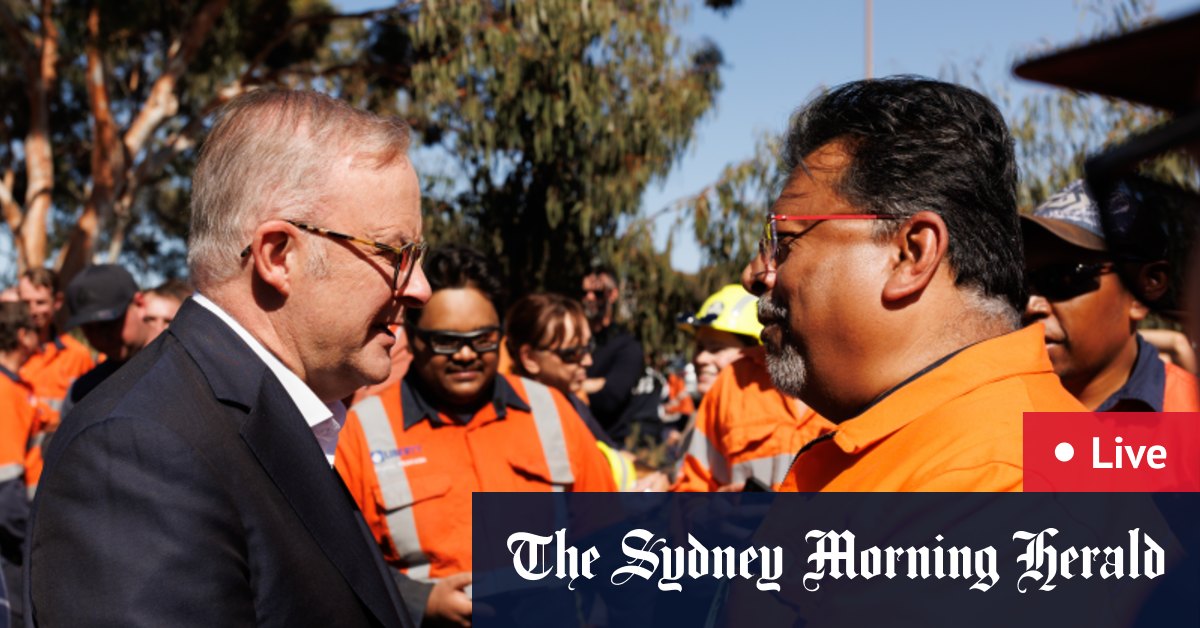Australia
Whyalla Steelworks Labor equity stake not ruled out; Kash Patel confirmed as US FBI director; Peter Dutton citizenship ceremony claims false

Citizenship Controversy: Dutton’s Allegations and the Facts
The Australian political landscape has been stirred by Opposition Leader Peter Dutton’s recent claims regarding the Labor government’s handling of citizenship ceremonies. Dutton suggested that the government is fast-tracking citizenship for individuals who fled Gaza to garner votes in marginal seats ahead of the upcoming election. These allegations, made at a Sky News summit on antisemitism, have sparked debate and raised questions about the motivations behind the timing of citizenship grants. However, fact-checking reveals that Dutton’s claims may be based on misinformation, as the legal process for obtaining Australian citizenship is stringent and unlikely to include individuals who have arrived in the country recently.
Ineligibility of Gaza Fleeing Individuals
Dutton’s accusations imply that the Labor government is prioritizing the citizenship applications of people fleeing Gaza, allegedly to influence election outcomes. However, this is a legal impossibility under Australia’s citizenship laws. To be eligible for citizenship, applicants must have been lawful residents of Australia for at least four years. This requirement means that anyone who arrived in the country after 2020 would not yet qualify to apply for citizenship. Home Affairs sources have confirmed that no Palestinians from Gaza have been granted citizenship in the current cohort of 12,500 individuals scheduled to receive their citizenship at ceremonies across Australia by March 4. Furthermore, except for one family granted permanent visas, all Gazans who have arrived in Australia since October 2023 are currently on temporary visas, making them ineligible for citizenship at this time.
The Government’s Response to Dutton’s Claims
When questioned about these claims on Nine’s Today program, Dutton refrained from repeating the specific accusations but continued to assert that his inquiries were "pretty reasonable." He emphasized the need for transparency, suggesting that Home Affairs Minister Tony Burke might be engaging in questionable practices. Dutton hinted at "branch-stacking" allegations, a term typically used to describe the manipulation of party memberships to influence outcomes, and implied that the government might be attempting to sway voters in marginal seats. However, the Home Affairs Department has clarified that the additional citizenship ceremonies are designed to address backlogs in areas with large numbers of approved applicants, not to influence electoral outcomes.
Political Implications and Dutton’s Concerns
Dutton’s concerns seem to stem from a broader suspicion about the government’s intentions ahead of the election. He has repeatedly questioned the timing of the citizenship ceremonies, suggesting that Minister Burke may be deviating from standard practices. Dutton’s comments also touch on the idea that new citizens might be more likely to vote for the Labor government, though when asked about this, he remarked that he believes these individuals are "smart enough to see through Tony Burke." This statement reflects Dutton’s attempt to frame the issue as one of transparency rather than overt political manipulation.
The Role of Transparency in the Citizenship Process
Despite the lack of evidence supporting Dutton’s claims, the issue has brought attention to the importance of transparency in government processes, particularly during an election period. The Home Affairs Department has emphasized that the citizenship ceremonies are a routine measure to manage the high volume of applications, particularly from countries like India and New Zealand, which account for a significant portion of the 12,500 individuals scheduled to receive citizenship. The department has not identified any irregularities or preferential treatment in the processing of these applications, and there is no indication that the ceremonies are being used as a political tool.
Conclusion: The Broader Implications for the Election
The controversy surrounding the citizenship ceremonies highlights the tension between political opportunism and responsible governance. While Dutton’s questions about transparency are valid in principle, they risk being overshadowed by the lack of evidence supporting his specific claims. As the election approaches, such debates underscore the importance of ensuring that political discourse remains grounded in facts and avoids unfounded speculation. The focus should be on fostering an environment where constructive dialogue can take place, rather than allowing misinformation to cloud the issues at hand.